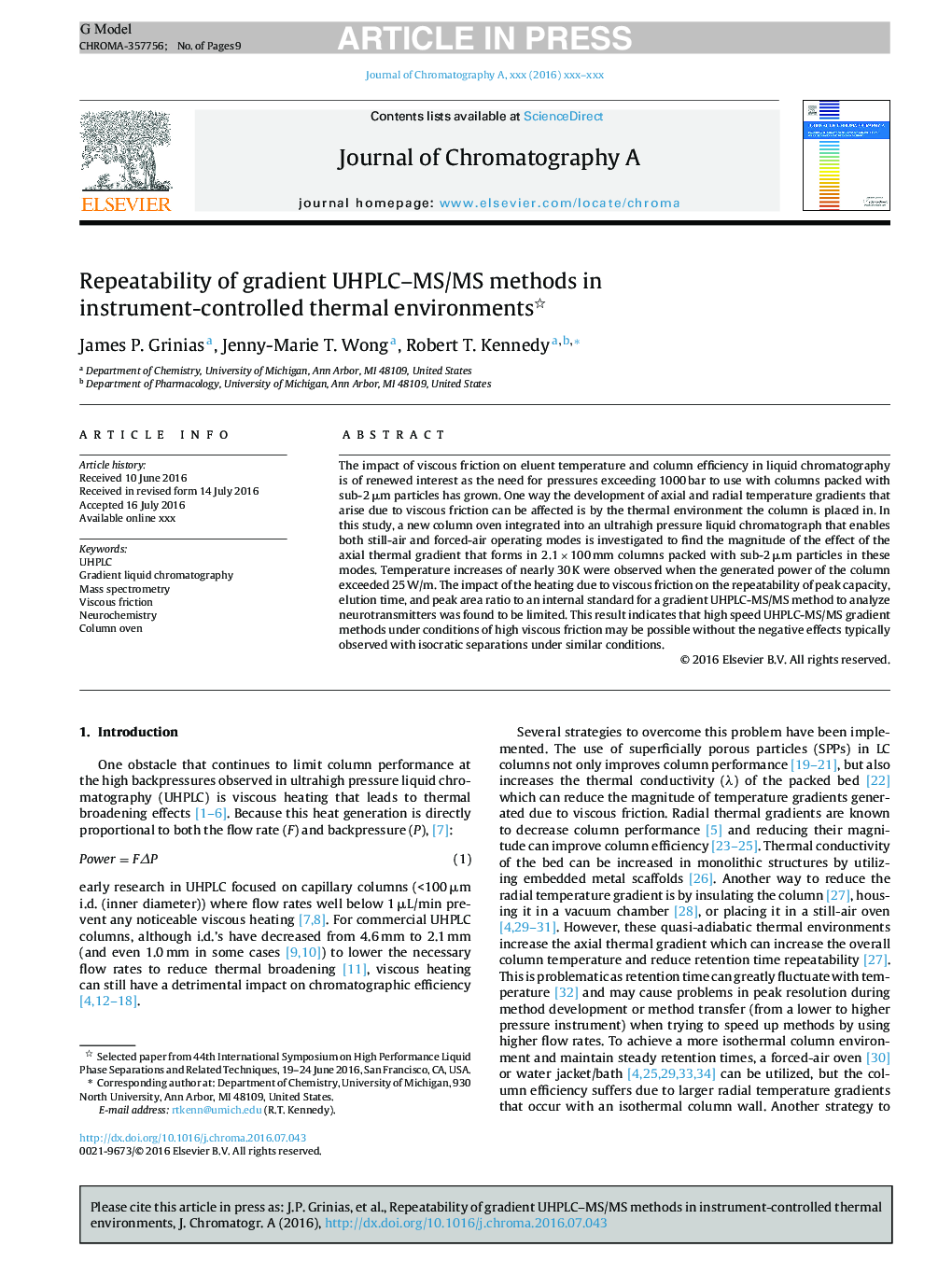| Article ID | Journal | Published Year | Pages | File Type |
|---|---|---|---|---|
| 7609896 | Journal of Chromatography A | 2016 | 9 Pages |
Abstract
The impact of viscous friction on eluent temperature and column efficiency in liquid chromatography is of renewed interest as the need for pressures exceeding 1000 bar to use with columns packed with sub-2 μm particles has grown. One way the development of axial and radial temperature gradients that arise due to viscous friction can be affected is by the thermal environment the column is placed in. In this study, a new column oven integrated into an ultrahigh pressure liquid chromatograph that enables both still-air and forced-air operating modes is investigated to find the magnitude of the effect of the axial thermal gradient that forms in 2.1 Ã 100 mm columns packed with sub-2 μm particles in these modes. Temperature increases of nearly 30 K were observed when the generated power of the column exceeded 25 W/m. The impact of the heating due to viscous friction on the repeatability of peak capacity, elution time, and peak area ratio to an internal standard for a gradient UHPLC-MS/MS method to analyze neurotransmitters was found to be limited. This result indicates that high speed UHPLC-MS/MS gradient methods under conditions of high viscous friction may be possible without the negative effects typically observed with isocratic separations under similar conditions.
Related Topics
Physical Sciences and Engineering
Chemistry
Analytical Chemistry
Authors
James P. Grinias, Jenny-Marie T. Wong, Robert T. Kennedy,
